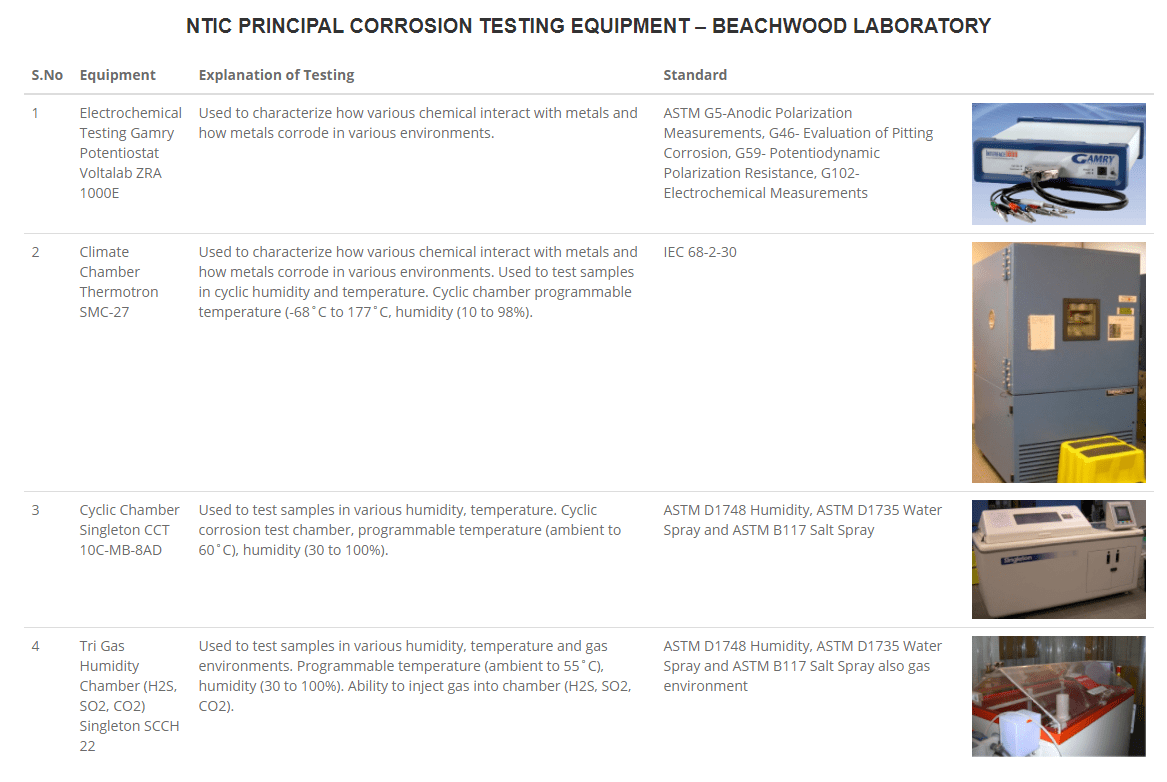I have over forty years of experience in the corrosion field and wear many hats for the Oil and Gas Group:
As a result of the above work I have been able to coauthor many papers and patents.
Zerust Oil and Gas, a division of Northern Technologies International Corporation (NTIC), supports Oil and Gas clients worldwide from its Research and Development facility headquartered in Beachwood, Ohio, USA.
However, Zerust also conducts product development and testing across several partner research and development facilities around the world.
The Beachwood Laboratory works on New Product Development, Product Support and Field Trials. Our laboratory leverages specialized equipment to conduct accelerated testing in various corrosive environments relevant to the Oil & Gas industry, including those containing Hydrogen Sulfide (H2S), Sulfur Dioxide (SO2) and Carbon Dioxide (CO2) as to continuously test our corrosion protection solutions.
The Zerust Minnesota Laboratory has the more typical chemical analytical equipment such as: FTIR, IC, TGA, DSC, GC-MS and LC-MS. The Beachwood Lab equipment is primarily targeted for corrosion and corrosion inhibitor testing. A good overview of some of the typical testing that we run can be found in: “Corrosion Inhibitors for Long-Term Protection of Enclosures” Lyublinski, Natale, 2013 NACE Corrosion Conference Orlando, FL,
Below is a table with principal corrosion testing equipment and their role in our testing.

For the first, an operator of offshore platforms approached us in regards to a corrosion problem they were having with trunnion supports on their platforms. Trunnion supports are one of the most often used pipe supports in the piping process industry. Inspections of the offshore platform trunnions have shown corrosion issues within the trunnion interiors. The primary cause of the corrosion is from saltwater ingress. Trunnions are constructed from various metals, carbon steel, 316 stainless steel and duplex stainless steel and operate across a wide range of temperature, from 10°C up to 170°C.
As there were no standard corrosion tests for this application our first step was to develop a suitable accelerated test method as to mimic the above problem. Once we were able to recreate the problem, create a test wherein the samples failed similar to what as seen on the platforms, we were able to then develop the corrosion protection solution. Three separate corrosion inhibitor solutions were eventually required as to be able to handle the wide temperature range for the application.
For the second project, we are working with a large multinational provider of technical industrial services where one of their areas of expertise is insulation such as piping insulation for the petrochemical industries. A critical issue within that industry is the corrosion that may occur on the exterior surface of the steel piping under said insulation. This corrosion is often referred to as CUI, (Corrosion Under Insulation). The localized corrosion from CUI can cause leaks in the piping resulting in shutdowns. The problem is especially troublesome as the effects of CUI are hidden from view.
We have developed a new product to mitigate CUI, called Zerust Inhibitor Fusion Tape or ZIF Tape for short. ZIF Tape is a corrosion inhibiting tape based on self-fusing silicone elastomers with proprietary Zerust corrosion inhibitors integrated into the polymer matrix. It combines our proven corrosion technology with the unique properties of a self-fusing tape for easy, ambient temperature, application.
The ZIF Tape is simply wrapped over the coated section of pipe to be protected, prior to the installation of the thermal insulation. The silicone tape matrix provides a physical barrier to moisture and contaminants reaching the metal surface, while the inhibitors within the ZIF Tape provides an extra layer of corrosion protection.
There are many test methods for evaluating the performance of coatings for CUI. None of these methods are applicable for testing ZIF Tape. As such, we are working with the aforementioned company to develop an accelerated test method as to demonstrate the ability of ZIF Tape to mitigate CUI.
For more information, they can visit our website at www.zerust-oilgas.com. They can also contact us with any questions they may have, and our team will be happy to help.